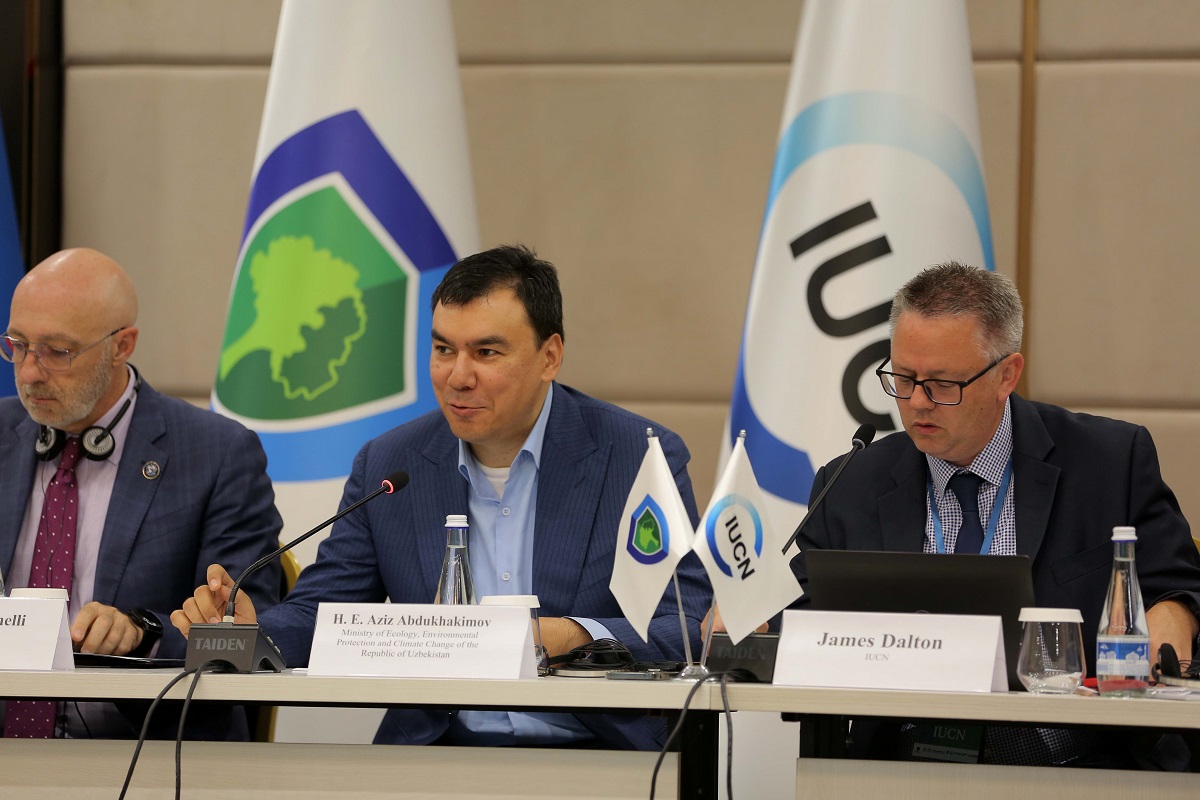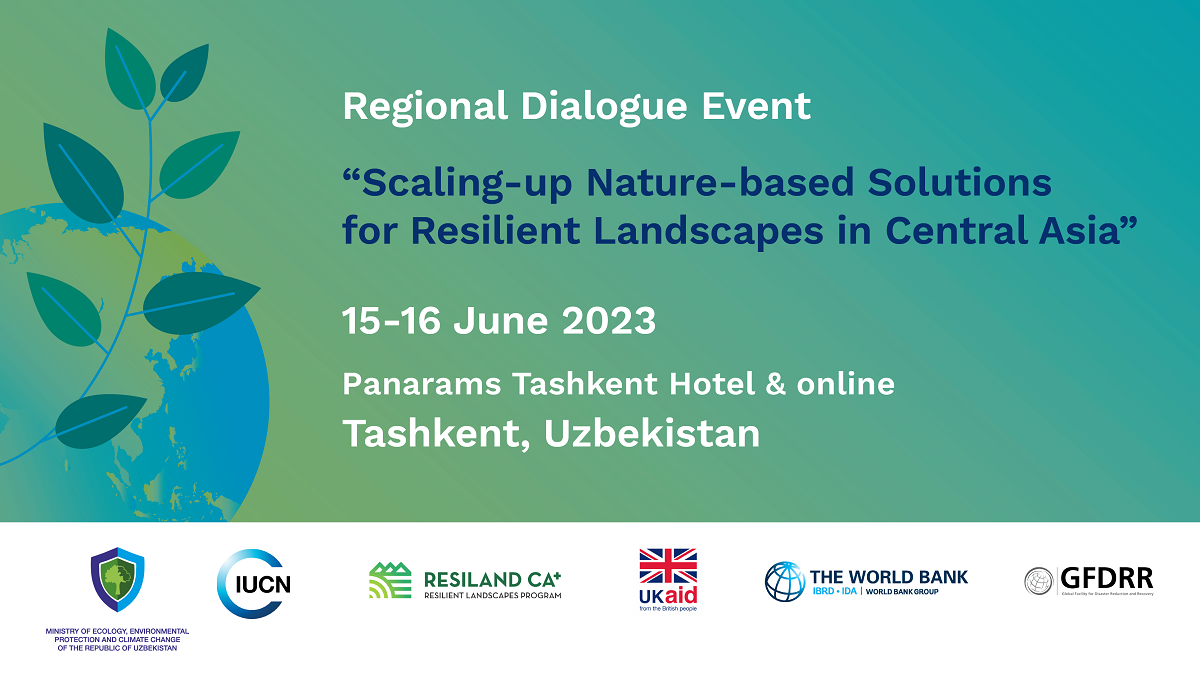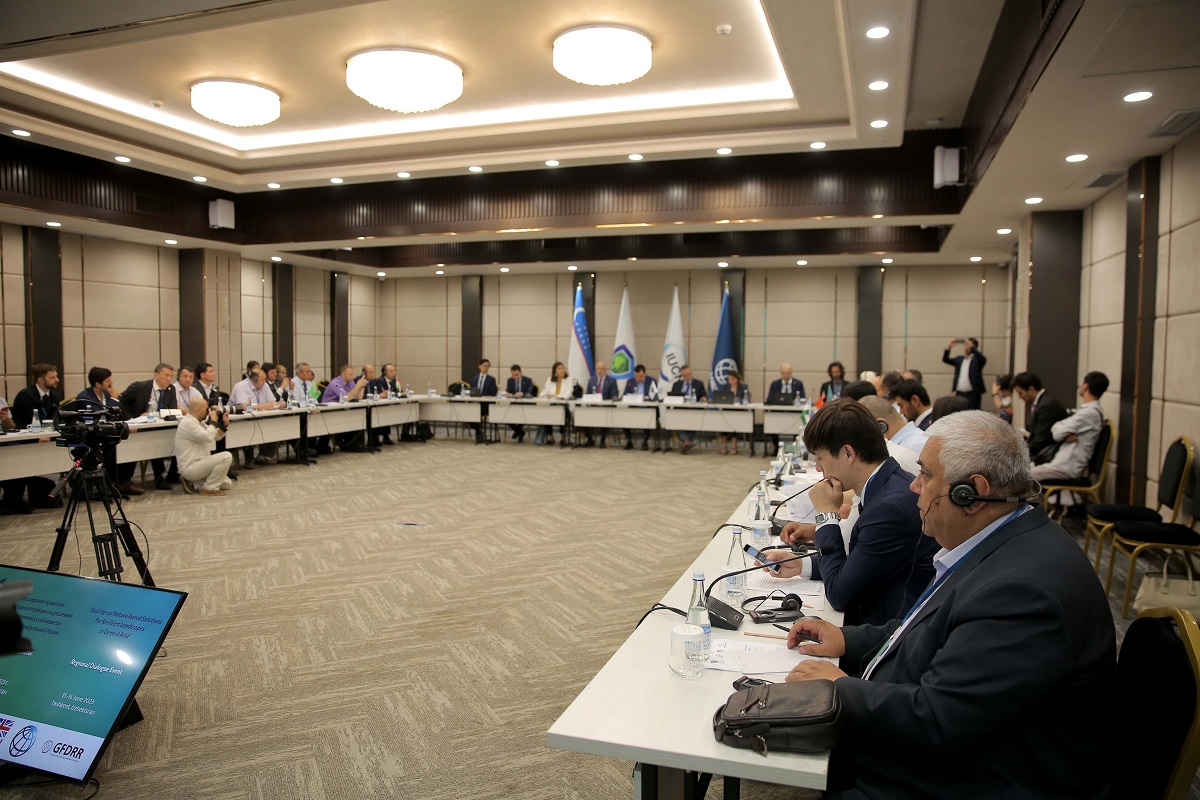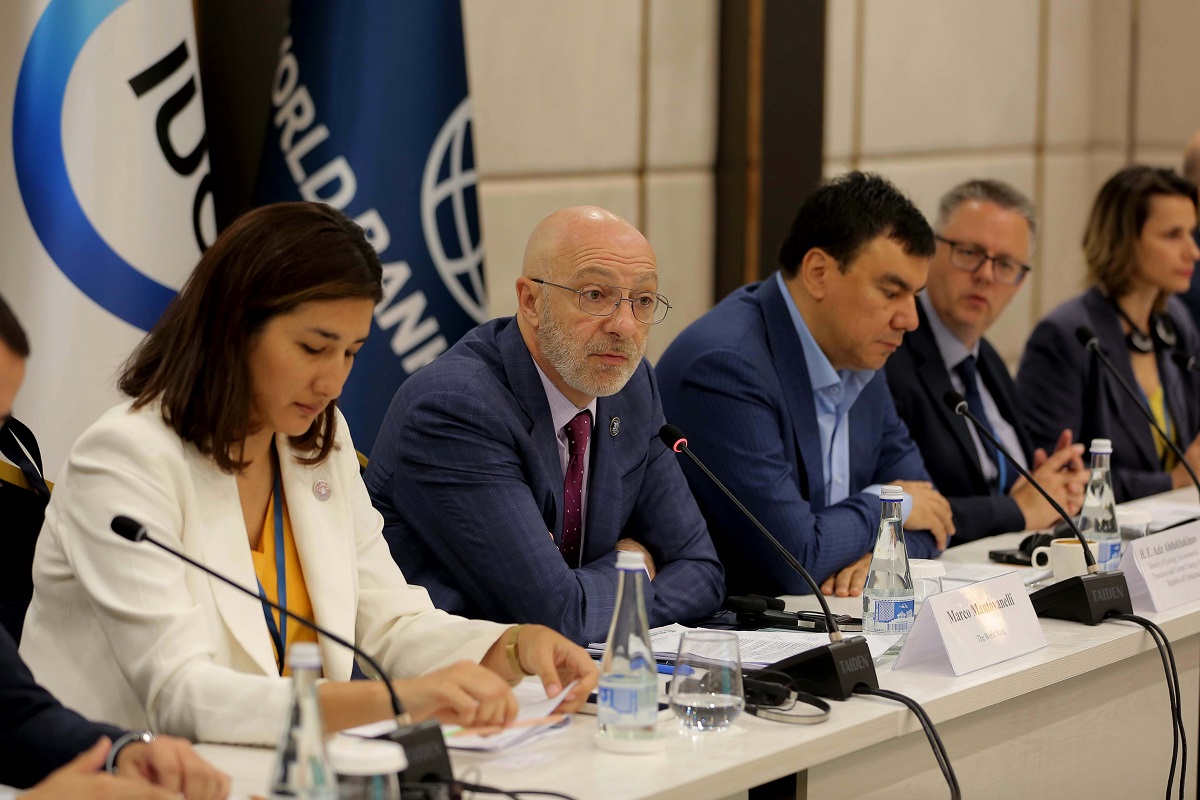Strong commitment to foster Nature-based Solutions for resilient landscapes in Central Asia
For two days, decision-makers, policy leaders, experts, and practitioners from Central Asia discussed scaling up Nature-based Solutions for resilient landscapes and communities in the region.

Opening ceremony
Minister Abdukhakimov, Ministry of Ecology, Enviroment Protection and Climate Change of the Republic of Uzbekistan
Marco Mantovanelli, Uzbekistan Country Manager, World Bank
James Dalton, Head of Water and Land Management Team, IUCN
The regional dialogue: “Scaling-up Nature-based Solutions for Resilient Landscapes in Central Asia” assembled global and regional distinguished speakers, governmental representatives and conservation experts in the vibrant city of Tashkent, Uzbekistan to address pressing challenges faced by Central Asia’s (CA) landscapes.
Participants have discussed major regulatory, financial, and implementation challenges faced by Central Asian governments for Nature-based Solutions (NbS) mainstreaming into key policies and sectors.
“As we face increasing vulnerability to climate change, it is essential that we come together to find solutions that will help us build resilient landscapes and deliver a resilient future for our generation. We are proud to support this regional dialogue and to enforce the commitments for strong implementation and scale-up of Nature-based Solutions”, stressed Aziz Abdukhakimov, Minister of Ecology, Environmental Protection, and Climate Change of the Republic of Uzbekistan, at the opening of the event.
 Photo: IUCN ECARO
Photo: IUCN ECARO
Climate change, landscape degradation, and loss of livelihoods represent some of the biggest environmental and societal challenges that affect both nature and people across Central Asia. The region’s landscapes have become increasingly vulnerable to extreme weather events and natural disasters brought about by climate change and human activities, including intensive agriculture, illegal logging, and unsustainable pasture and livestock management. It is important to intensify the regional dialogue to prevent and mitigate these negative developments.
The World Bank’s RESILAND CA+ Program aims to assist rural communities in affected areas of Kazakhstan, Kyrgyzstan, Tajikistan, Turkmenistan, and Uzbekistan by restoring landscapes, safeguarding lives and livelihoods, and enhancing resilience against desertification, landscape degradation, and climate change.
 Photo: IUCN ECARO
Photo: IUCN ECARO
One of the fundamental strategies to achieve those goals is the widespread implementation of Nature-based Solutions (NbS) across the Central Asia region. NbS, encompassing the protection, sustainable management, and restoration of both natural and modified ecosystems, offers a comprehensive approach to addressing societal challenges while benefiting biodiversity and human well-being.
Specifically designed for disaster risk reduction and climate adaptation, for instance, forest planting, NbS capitalize on the advantages derived from healthy ecosystems. They tackle crucial issues such as climate change, disaster risk reduction, food and water security, biodiversity loss, and human health, ultimately fostering sustainable economic development.
“Building resilience and protecting livelihoods, especially among impoverished rural communities, necessitates a greener growth model. The World Bank is actively assisting the Government of Uzbekistan to achieve these crucial objectives," stated Marco Mantovanelli, World Bank Country Manager for Uzbekistan. "Our Country Partnership Framework for 2022-2026 will specifically aid the authorities in expanding sustainable landscape management and revitalizing degraded forests across Uzbekistan. Moreover, it will foster collaborative efforts with neighboring Central Asian countries for cross-border landscape restoration, as exemplified by the regional event in Tashkent these days.”
 Marco Mantovanelli, Country Director, World Bank Uzbekistan
Photo: IUCN ECARO
Marco Mantovanelli, Country Director, World Bank Uzbekistan
Photo: IUCN ECARO
Representatives from government bodies, financial institutions, and civil society organizations explored the enabling factors that can unlock new NbS opportunities in Central Asia.
“This dialogue fosters joint action and cross-border cooperation on effective application of NbS for climate in the Central Asia context. It encourages stakeholders across the region to design and implement NbS interventions at scale and strengthens the uptake of this umbrella concept in key policies for disaster risk management and climate adaptation. This demonstrates a big step forward for establishing healthy, productive, and resilient ecosystems in the region where both nature and people can thrive” emphasized Boris Erg, Director of IUCN Europe (EURO) and acting Director of IUCN Regional Office for Eastern Europe and Central Asia (ECARO).
The regional dialogue co-hosted by the Ministry of Ecology, Environmental Protection and Climate Change of the Republic of Uzbekistan and the International Union for Conservation of Nature (IUCN) is organized as part of the World Bank’s Central Asia Resilient Landscape Restoration Program (RESILAND CA+). The event is organized with the support of the Program for Asia Connectivity and Trade (PACT) sponsored by the UK Government.[1]
The role of policy and regulation in facilitating large-scale NbS deployment was a key focus of dialogue and discussions, together with strategies for addressing the impacts of climate-induced natural disasters through landscape restoration and climate-resilient infrastructure. Furthermore, sharing NbS success stories from Central Asia and other regions worldwide, offering best practice insights and lessons learnt will also be in focus during this regional dialogue.
 Photo: IUCN ECARO
Photo: IUCN ECARO
[1] The views expressed during the event do not necessarily reflect the official views of the UK Government.
